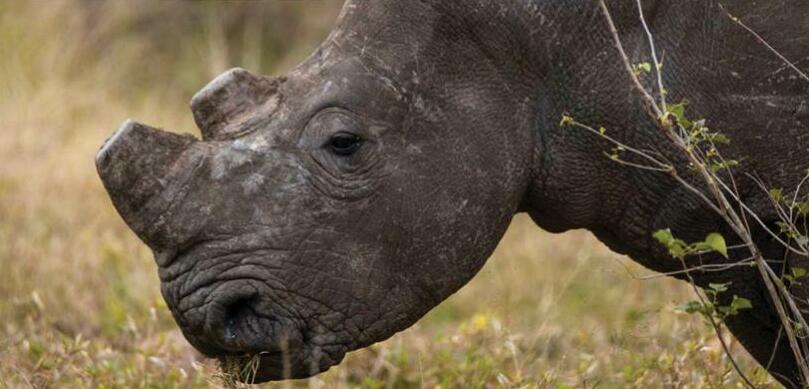Intentar ORO - Gratis
De-horning black rhinos is changing their behaviour
BBC Wildlife
|August 2023
Given the scant evidence that removing the horns of rhinos reduces poaching, is it worth it?

NEW RESEARCH SHOWS THAT REMOVING the horns of black rhinos to make them less attractive to poachers is reducing their territory sizes and making them less sociable with each other.
The study, published in the journal PNAS, found that de-horned South African rhinos have home ranges that are 45 percent smaller than those of intact animals, and that they were 37 percent less likely to engage in social interactions.
"The big, dominant bulls that used to have very large territories that overlapped with a lot of females may now have much less territory and much less reproductive success," says Vanessa Duthé, who led the work at Switzerland's University of Neuchâtel.
Esta historia es de la edición August 2023 de BBC Wildlife.
Suscríbete a Magzter GOLD para acceder a miles de historias premium seleccionadas y a más de 9000 revistas y periódicos.
¿Ya eres suscriptor? Iniciar sesión
MÁS HISTORIAS DE BBC Wildlife

BBC Wildlife
SNAP-CHAT
Lara Jackson talks magical otters, curious rhinos and ticks in the toes
3 mins
October 2025

BBC Wildlife
What's the difference between global warming and climate change?
PEOPLE OFTEN USE THE TERMS global warming and climate change interchangeably, but they describe different concepts. Global warming refers to Earth’s increasing surface temperature.
1 min
October 2025

BBC Wildlife
THE FROZEN CONTINENT
Visit the epic landscapes of Antarctica with HX Hurtigruten Expeditions, the unique cruise line made for curious travellers
3 mins
October 2025

BBC Wildlife
Dragonfly dialogue
STARTED TALKING TO DRAGONFLIES IN India at a place where my husband and I stayed several times in the foothills of the Himalayas.
1 mins
October 2025

BBC Wildlife
What's the largest animal gathering on Earth?
PEOPLE LOVE A PARTY. BUT AS POPULOUS as our species is, the headcounts at our gatherings don't match those of other species. The Maha Kumbh Mela, a Hindu pilgrimage in Prayagraj, India, drew more than 660 million people in January 2025. But this horde - thought to be the largest in human history – pales in comparison to the groups formed by our animal relatives.
1 mins
October 2025

BBC Wildlife
Do plants have memory?
TO HAVE TRUE MEMORY AN ORGANISM requires brain cells to store experiences through the action of sophisticated neurotransmitters. Plants lacking brain cells therefore cannot be said to have that capacity for memory. However, there is evidence that some plants adapt their characteristics based on 'remembered' experiences.
2 mins
October 2025

BBC Wildlife
wild OCTOBER
7 nature encounters for the month ahead
3 mins
October 2025

BBC Wildlife
Do sharks have bones?
WHILE HUMANS HAVE A BONY skeleton, parts of our bodies - such as our noses - are made of cartilage. This soft, flexible material forms the entire skeletons of sharks and rays.
1 min
October 2025

BBC Wildlife
KATE BRADBURY
As the nights draw in, encountering bats can be a magical adventure
2 mins
October 2025

BBC Wildlife
Cool runners of the desert
The beetle that beats the heat by sprinting
1 mins
October 2025
Translate
Change font size
